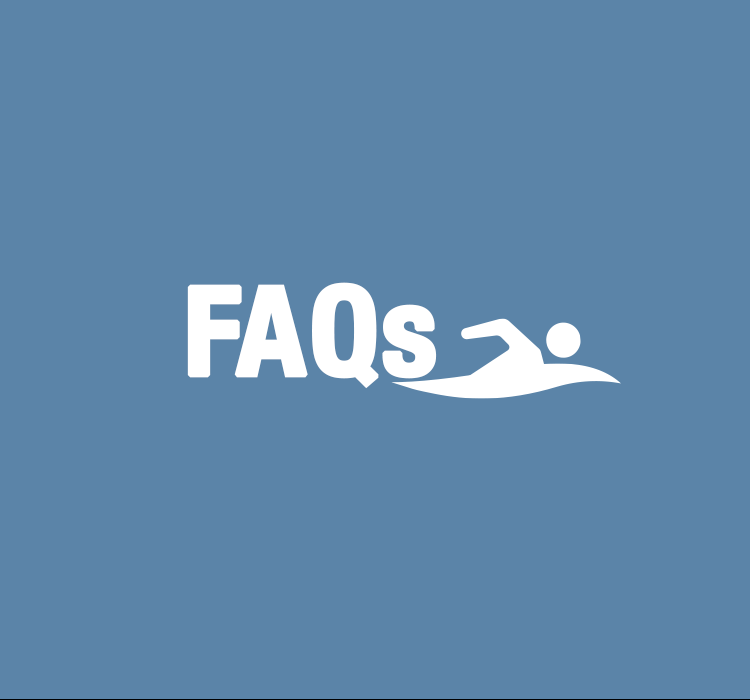Frequently Asked Questions
What is the Physio Pool or a hydrotherapy pool?
Hydrotherapy is the use of warm water to treat medical conditions. The water temperature is usually 35 – 36 degrees celsius, which is warmer than normal swimming pools. Hydrotherapy is a recognised physical and mental health treatment. The water pressure and movement act as a form of physiotherapy for body and joint pain.
It can help alleviate the symptoms of a wide range of conditions such as arthritis, osteoporosis, cerebral palsy, and recovery from accidents and sporting injuries. They have accessibility features such as wheelchair access, hoists and a slowly increasing depth. Changing rooms are also accessible.
What are the benefits of hydrotherapy compared with land-based physiotherapy?
Patients with weak and painful joints and muscles tend to find exercise and movement in the warm water much easier and less painful than land-based exercise. This is because water supports the body and the force of gravity is reduced. The warm water has a relaxing effect.
What makes Dunedin’s Physio Pool special?
- One of NZ’s largest warm-water therapeutic pools (22.9m x 9.1m)
- Heated to ~35°C year-round
- Depth: 1.2 – 3m (supports progressive rehab & aquajogging)
- Wheelchair accessible, with hoist
- Spacious private changing rooms (only a few steps from the water)
- Quiet, non-threatening environment
- Central location – close to Dunedin Hospital, Physio Outpatients, and Bus Hub 10” walk on the flat
- This is thought to be a culturally significant site as it was thought to have been a significant nohoanga and possible burial site of Ngāi Tahu (as Edward Ellison advised Prof Ted Nye during his Heritage NZ application process in 1998)
- Disability-friendly carparks and taxi drop-off beside entry ramp
- Its significant heritage status, recognising early build, engineering and architectural innovations that have remained functional for 80 years of rehabilitation delivery
Why did the Physio Pool close?
The heating system suffered a mechanical failure in May 2021. The Trust intend to replace this part and make the pool fully functional again.
What is required to reopen the Physio Pool?
The Trust need to obtain a lease for over 10 years from Healthcare New Zealand, so that the Trust can commence fundraising efforts to reopen the pool.
Has the Dunedin Physio Pool supported significant research?
Yes. Otago University researchers have regularly conducted studies using the Physio Pool.
Three of the most recent studies (published in 2023 and 2024) led by Brendan Roxburgh, of Otago University’s Physical Education Dept, and his team of Dunedin co-researchers from the Dept of Surgical Sciences, Dept of Orthopaedic Surgery, Dunedin Hospital Health NZ, Dunedin School of Medicine, and Heart Otago, were undertaken on patients in the Physio Pool prior to its closure; plus Prof Ted Nye earlier proved the benefits of cardiac rehab:
- Passive heat therapy and upper limb HIIT exercises were both effective for significantly lowering systolic and diastolic blood pressure (acutely and chronically) — 90 minutes per week in the pool was shown to have similar effects to a 12 week course of many commonly prescribed anti-hypertensive medications.
- Upper limb high intensity interval training and passive heat therapy optimises cardiorespiratory fitness prior to Total Hip or Knee Arthroplasty: 12 weeks of HIIT incorporating the upper limbs is effective for improving peak V02 in patients with lower-limb osteoarthritis. The combination of heat therapy and resistance exercise training may exacerbate skeletal muscle adaptations, preventing muscle atrophy pre and post op.
- Acute hot water immersion has a potent analgesic effect in people with severe lower limb osteoarthritis, persisting over 12wks with repeated exposure, enabling patients with severe lower limb osteoarthritis to participate in meaningful high intensity cardiovascular exercise relatively pain free.
- Rehabilitation after Myocardial Infarction was NZ’s first paper to refer to hydrotherapy activities for cardiac patients. Prof Ted Nye, Otago University.
- Physiological Society, 2023 – Roxburgh B et al. April 2023: DOI 10.14814/phy2.15699.
- Arthritis Care and Research, Vol 76, No 3, March 2024, pp393-402
- International Journal of Research in Exercise Physiology: Roxburgh et al (2024) 19(2):19-41
- Rehabilitation after Myocardial Infarction, Nye ER, Patient Management, 1976,25-29
Summary of Key Facts
Summary of Key Facts:
- Opened 1946: designed by Mason & Wales (1943), NZ’s first purpose-built therapy pool
- Otago Therapeutic Pool Trust: Trust formed to take over management of facility from 1983, keeping it open and enabling public access, other than during hospital only patient sessions
- Size: One of NZs largest warm water pools: 22.9m x 9.1m, 1.2-3m depth, temp 35-36°C
- Heritage listed (DCC District Plan B1292) “Entire building envelope and interior reinforced concrete portal frames of Otago Therapeutic Pool”: many structural and design innovations
- Heritage-listed (NZ Heritage List no. 7581, Category 2, accepted 2004)
- Culturally significant Ngāi Tahu site (nohoanga and possible burial ground) – Edward Ellison
- Closed May 2021 due to heating system failure
- Peak annual visits: 80,000+ (prior to closure approx. 40,000 visits annually)
- Users: 90% users pre closure 2021 were aged 65yrs+, and identified as having a disability
- Physio Pool opening hours before it closed in May 2021;Mon, Wed, Fri: 6.30am – 9.30am and 11am – 6.45pm
Tues, Thurs: 6.30am – 6.45pm
Sat, Sun: 8am – 11.45am
Hospital-only sessions: Weekdays 9.30am – 11am (run by HNZ physiotherapists)
Who do people talk to if they have questions and how can they reach the Trustees?
You can email us directly:
John Bezett: johnbezett@gmail.com
Barb Anderson: barb.gaba18@gmail.com
Ted Daniels: ted@teddaniels.nz
Katrina Pōtiki Bryant: katrina.bryant@otago.ac.nz
Barb Gee: barbs500c@gmail.com
Ruth Thomson: peterandrutht@gmail.com
or via the Physio Pool email at info@physiopool.org.nz
or visit the Facebook page


